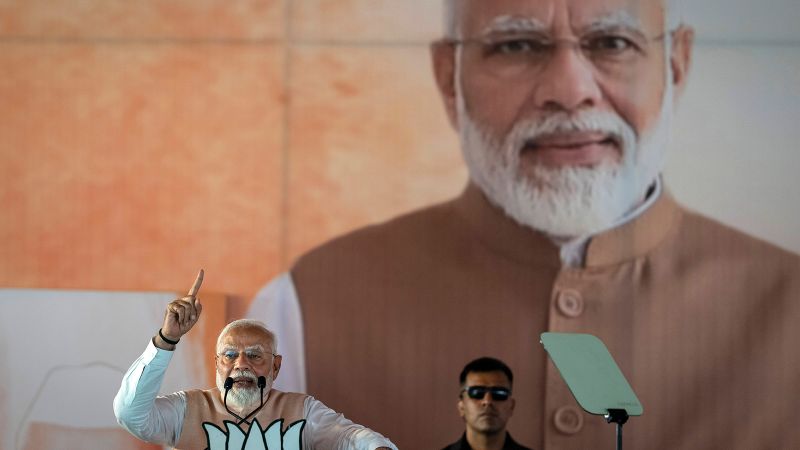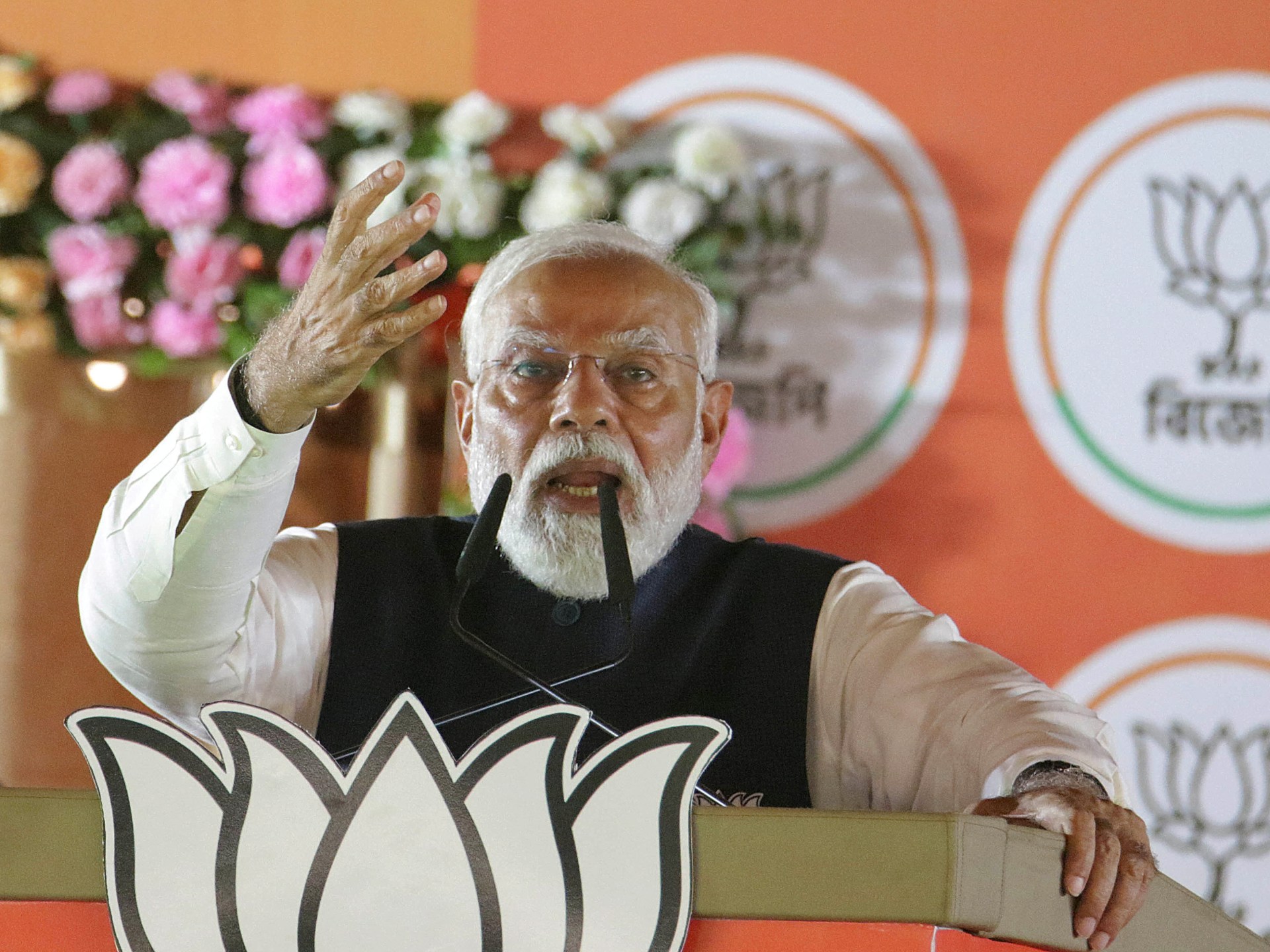
Prime Minister Narendra Modi of India has been accused of using hate speech towards the Muslim community during a campaign rally in Rajasthan State. The opposition, including the Congress party and various Muslim organizations, have condemned Modi's remarks as Islamophobic and divisive.
During his speech, Modi accused the opposition of distributing wealth among 'infiltrators' and those with 'more children.' These comments were seen as a veiled reference to the Muslim community. The Congress party, which has been a major critic of Modi's policies, filed a complaint with the Election Commission of India alleging that Modi had violated rules that bar candidates from engaging in any activity that aggravates religious tensions.
Modi's remarks come at a time when India is holding its weekslong general election. The country has seen an increase in religious polarization and hate crimes against the Muslim community, with Muslims being lynched by Hindu mobs over allegations of eating beef or smuggling cows. Modi's Bharatiya Janata Party (BJP) has been criticized for using divisive rhetoric and driving religious polarization in India.
The opposition and Muslim community leaders have called on the Election Commission to take action against Modi for his hate speech. The Rashtriya Swayamsevak Sangh (RSS), a right-wing Hindu nationalist organization with close ties to the BJP, has also been accused of promoting anti-Muslim sentiment.
It is important to note that India's tradition of diversity and secularism has come under attack in recent years. The country's lower castes, tribes, women, and minorities have long been marginalized and excluded from the mainstream. Former Prime Minister Manmohan Singh had once said that these groups deserved to share in the country's development equally.
Despite accusations of hate speech and divisive rhetoric, Modi continues to enjoy widespread popularity among his supporters. The BJP is expected to win a significant number of seats in the general election, which will be held over several phases between April and May 2024.



